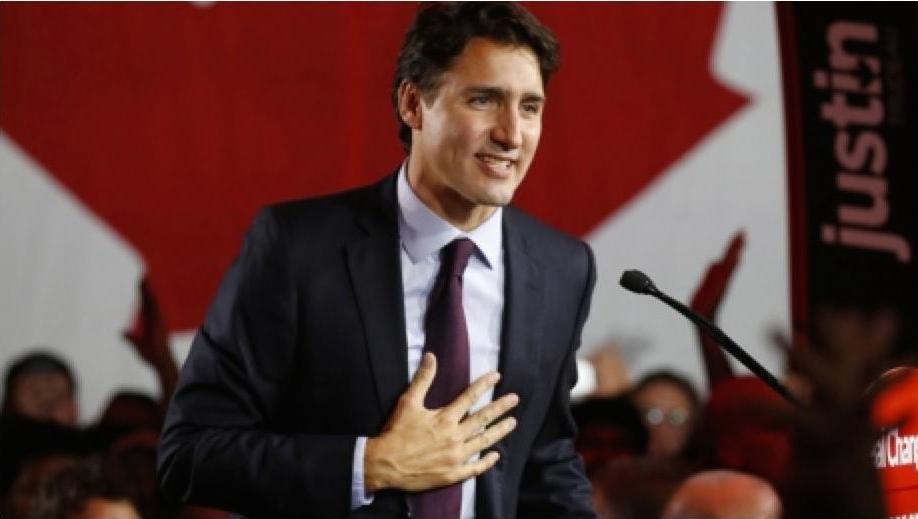Justin Trudeau took the stage with a smile last Monday night at downtown’s Fairmont Queen Elizabeth Hotel as his Liberal Party swept into power. This ended almost 10 years of Conservative government under prime minister Stephen Harper. The son of the late prime minister Pierre Elliot Trudeau, Justin led his father’s former party to capture 39.5 per cent of the popular vote, and 184 of 338 seats in the House of Commons, according to Elections Canada.
James McGill Professor of Political Science at McGill, and an expert on the Canadian political system, Richard Schultz, expressed surprise at the results.
“I was assuming a Conservative minority government until the last three or four weeks [of the campaign], when I started assuming a Liberal minority government,” Schultz said. “At no point did I assume a [Liberal] majority.”
Trudeau accomplished a first in Canadian history, elevating his Liberals from third-party status to a majority government, four years after their worst electoral defeat in history. He did so by courting an enthused electorate that, according to Elections Canada, voted in greater numbers than any other time in the past 20 years, with voter turnout at 68 per cent. Political Science Students’ Association (PSSA) President Richad Hirani, U3 Arts, observed a similar sentiment on campus.
“We had great turnouts for both our panel session and debate, as well as our election night party at Gerts,” he remarked. “There was a line at the door just to get in and watch.”
Many have suggested that strategic voting, fuelled by widespread dissatisfaction with the incumbent Conservatives, was on the mind of many Canadians on Election Day.
“There were a lot of people here that [asked] ‘Which party will defeat the Conservatives?’” said Schultz. “Once it became clear that the Liberals were the alternative to the Conservatives, I think people flocked, and that’s strategic.”
Nanos Polls dated from Sept. 16 and Oct. 18 appear to agree with this assessment, as Tory support remained constant amidst the dramatic collapse of Thomas Mulcair’s New Democratic Party (NDP) and the equally dramatic rise of the Trudeau’s Liberals.
Vice-President (VP) Social for NDP McGill, Casarina Hocevar, described voters in such a context.
“People were thinking ‘I just really want to get rid of Harper,’” Hocevar said. “They were thinking at the federal level. There was a focus on the party leaders rather than any of the local candidates.”
Whether or not McGill students were unaware of local candidates, however, those running remained engaged, as Hélène Laverdière and Allison Turner of the NDP, as well as Christine Poirier and Marc Miller of the Liberals each made appearances at campus events organized by the PSSA and their respective student political clubs. Their presence came amidst the launch of a new Elections Canada programme that permitted students to vote in advance polls on campus for either their home riding, or the riding in which they live during their time at university.
“I think students were definitely more engaged because they had that option,” Hirani said. “And I think local candidates realized that [students] would be more likely to vote overall.”
“If [voters] have a voluntary choice between the two ridings, they’ll probably examine candidates in either riding more closely,” Hocevar echoed. She explained how NDP McGill encouraged students to vote strategically using the system.
“At the beginning of the election, when it was a tight race, we told people that their vote would really matter in [the race in Ville-Marie-Le Sud-Ouest-Île des Soeurs],” Hocevar said. “But we advised them to take a look at their local ridings as well.”








